- Apply to be non-matriculated
- Transfer up to 9 hours of non-matric credit
- U Grad Admissions Process
- ME EN Grad Admissions Info/Requirements
- Admitted Grad Student Info
- Transfer up to 6 hours from other Universities
- Degree Requirements
- Graduation Overview for MS Candidates
- Apply to Graduate
- Apply to be non-matriculated
- Transfer up to 9 hours of non-matric credit
- U Grad Admissions Process
- ME EN Grad Admissions Info/Requirements
- Admitted Grad Student Info
- Transfer up to 6 hours from other Universities
- Degree Requirements
- Graduation Overview for MS Candidates
- Apply to Graduate
- Apply to be non-matriculated
- Transfer up to 9 hours of non-matric credit
- U Grad Admissions Process
- ME EN Grad Admissions Info/Requirements
- Admitted Grad Student Info
- Transfer up to 6 hours from other Universities
- Degree Requirements
- Graduation Overview for MS Candidates
- Apply to Graduate
- Apply to be non-matriculated
- Transfer up to 9 hours of non-matric credit
- U Grad Admissions Process
- ME EN Grad Admissions Info/Requirements
- Admitted Grad Student Info
- Transfer up to 6 hours from other Universities
- Degree Requirements
- Graduation Overview for MS Candidates
- Apply to Graduate
- Suggested Curriculum
- Track Requirements: ME Robotics Track students should satisfy robotics degree requirements
- Researchers
- Program Declaration Form
- Petition for Exception to Department Policy
- Change of Committee Member
- Report of Due Progress*
- Preliminary Program of Study
- Quals Registration Form
- Committee
- Proposal
- Announcement Template (must be submitted to your grad advisor at least 1 week prior to proposal date)
- Proposal Defense Report
- Defense Summary
- Final Program of Study
- Defense
- PhD Dissertation Content Review (required before scheduling Oral Defense)
- Announcement Template
- Oral Defense Report
- Defense Summary
- MS Thesis Preliminary Program of Study
- MS Committee
- MS Thesis Final Program of Study
- Announcement Template
- MS Thesis Oral Defense Report
- MSNT Preliminary Program of Study
- MS Committee
- MSNT Final Program of Study
- MS/MBA Final Program of Study
- Coursework Sample Plan
- BS/MS Thesis Preliminary Program of Study
- BS/MS Non-Thesis Preliminary Program of Study
- Request for Grad Credit
- MS Committee
- BS/MS Thesis Final Program of Study
- BS/MS Non-Thesis Final Program of Study
- Announcement Template
- BS/MS Thesis Defense
- Your application could be incomplete. Check in ApplyYourself to make sure all required documents have been received.
- If you are a PhD applicant, we require a two-way match with a faculty member to be admitted (i.e. a faculty makes you an offer and you accept) or if you have external funding you can also potentially be admitted if you can find a faculty supervisor. If you haven’t communicated with any faculty and none have contacted you, you might want to email faculty who might be a good fit and find out if they’re looking for students. Your application will remain pending unless an offer is made and accepted and your application will be denied and closed at the end of the admission period (end of prior semester to the semester you’re applying for) if an offer wasn’t made to you.
- Most Master’s students who meet the Graduate School admission criteria should be admitted but international students may need to show they have funding for at least travel to the U.S. and the first year’s expenses because not much funding is available for Master’s students.
- All Master’s students that are admitted are admitted as non-thesis by default. If you find and confirm an advisor and research topic, you can be considered for admission into the M.S. Thesis Program.
- Log in to ApplyYourself
- Edit your Application
- On the Left Sidebar under Important Links, select Recommendations
- Check the email address. If it is correct, click Resend. If it is incorrect, delete the recommender and add a new recommender with the correct email address.
- Reach out to the ApplyYourself vendor’s technical support team. There is a link for technical support at the bottom of the main login page and at the top if an applicant is logged into the application.
- If the person is not receiving the email, you can try to get a different email address for your recommender and add a new recommender listing using the new email address and see if the request goes through.
- If nothing else works, contact us about alternative submission methods.
- Log in to ApplyYourself
- At the bottom of the page, click link for Decision Status Available
- Open and view the letter
- Click the link at the bottom of the letter and fill out required info
- Assistantships (to obtain, contact faculty with whom you share common research interests and attempt to get one of them to sponsor you in their lab)
- Teaching Assistantship (TA) – TA positions are available primarily to MS Thesis and PhD students. These awards are determined by the recommendation of a faculty sponsor. Once admitted, MS Non-Thesis students can apply through our TA database and upload a resume so that professors can view and select qualified applicants for their courses.
- Research Assistantship (RA) – RA positions are available to MS Thesis and PhD students only. These positions are by recommendation of a professor and are awarded during admissions.
- Graduate Fellowships (GF) – GFs are by nomination and are typically given to PhD candidates. GFs usually perform the work of RAs.
- Scholarships
Environmental Fluids Focus Area
Environmental Fluid Dynamics Focus Area
Requirements
| Core Requirements | 6 hrs from | Any ME EN Fluids & Thermal Sci grad courses |
| Focus Electives | 6 hrs from | Any Environ Science (ENVST) grad courses |
| 6 hrs from | Any Mathematics (MATH) grad courses | |
| Math Sci Engin Electives | 12 hrs | Any Math, Science, or Engineering grad classes |
Quick Links
Robotics Focus Area
Robotics Focus Area
Requirements
| Core Requirements | 3 hrs | ME EN 6220 Intro to Robotics |
| 3 hrs | ME EN 6230 Intro to Robot Control | |
| 3 hrs | CS 6370 Motion Planning -OR- CS 6300 Artif Intel | |
| 3 hrs | CS 6640 Image Proc -OR- CS 6320 Computer Vision | |
| Focus Electives | 3 hrs from | Area 1*: any Mechanics, Control, Cognition, Perception, HRI, or Robot Design course |
| 3 hrs from | Area 2*: any Mechanics, Control, Cognition, Perception, HRI, or Robot Design course | |
| ME Electives | n/a | n/a |
| Math Sci Engin Electives | 12 hrs | Any |
* Area 1 and Area 2 must be different topics
Quick Links
Data Science in Mechanical Engineering
Data Science in Mechanical Engineering
Requirements
| Data Science in Mechanical Engineering | ||
| Core Requirements | 9 hrs from | *(1) CS 6140 Data Mining |
| *(2) CS 6350 Machine Learning | ||
| *(3) CS 6355 Structured Prediction | ||
| MATH 5010 Introduction to Probability | ||
| CS 6190 Probabilistic Modeling | ||
| CS 6230 Parallel Computing | ||
| Focus Electives | 6 hrs from | MATH 5740 Mathematical Modeling |
| MATH 6010 Linear Models | ||
| MATH 6020 Multilinear Models | ||
| MATH 6790 Case Studies in Comp Eng & Sci | ||
| CS 6300 Artificial Intelligence | ||
| CS 6635 Visualization of Scientific Data | ||
| CS 6955 Deep Learning | ||
| CH EN 7703 Bayesian Model Validation | ||
| CS 7960 Models of Comp for Massive Data | ||
| ME Electives | 9 hrs | Any |
| Math Sci Engin Electives | 6 hrs | Any |
*(#) = Recommended Sequence
Quick Links
Advanced Manufacturing Focus Area
Advanced Manufacturing Focus Area
Requirements
| Core Requirements | 6 hrs | ME EN 6010 Manufacturing Processes |
| ME EN 6011 Additive Manufacturing | ||
| Focus Electives | 9 hrs from | ME EN 6015 Laser-based Manuf & Matls Proc |
| ME EN 6035 Design of Experiments | ||
| ME EN 6050 Micromachining | ||
| ME EN 7960 Fund of Low Dim Manuf | ||
| ME EN 7960 Nano Fabrication | ||
| Math Sci Engin Electives | 15 hrs | Any Math, Science, or Engineering Grad Classes |
Quick Links
Focus Areas
MS Non-Thesis Focus Areas
MSNT students are required to have a focus area for their studies. These focus areas are designed to help guide graduate their coursework. You can find more information about each focus area below.
Advanced Manufacturing
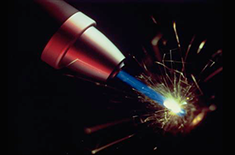
Examining materials produced using innovative technologies, and the leveraging of innovative technologies to create existing and new products.
Aerospace

Fundamental and system-level research toward next-generation aerospace and aeronautical systems.
Biomechanical Engineering

Applying mechanics to biological systems, including the study of how the human body responds to the application of force.
Computational Mechanics in Mechanical Engineering
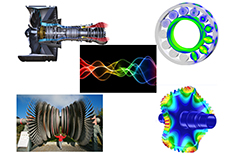
Developing mathematical models to represent physical phenomena and applying modern computing methods to analyze these phenomena.
Data Science in Mechanical Engineering

Developing and applying machine learning and artificial intelligence to generate new models and learn governing equations using simulated or physical data sets.
Environmental Fluid Dynamics

Studying the properties of the Earth’s atmosphere and its relation to the science of fluid dynamics, including large scale simulations and field experiments.
Micro/Nano

Investigating problems related to micro/nano scale materials, devices, biological systems, and phenomena occurring at the micro/nano scales.
Robotics

Researching design, construction, operation, and use of robots with strong collaboration between Computing and Mechanical Engineering.
Solid Mechanics
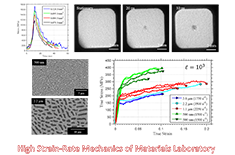
Characterizing, designing, and predicting mechanics of soft and hard structures.
Sustainable Energy
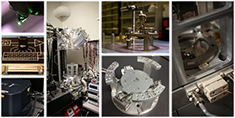
Developing clean energy systems, including direct energy production, energy storage, and the integration of energy efficient technologies.
Systems Engineering

Developing, analyzing, optimizing, and managing complex engineered systems to improve their productivity and efficiency.
Thermal Science
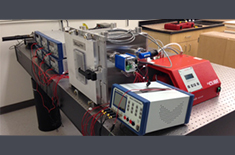
Studies of thermodynamics and heat transfer physics in a wide range of length and time scales that impact engineering and biological applications.
Custom Focus Area
Focus areas that don’t match with the areas above can be approved on a case-by-case basis. Contact your graduate advisor for more details.
Current Student Forms
Current Student Forms
General
PhD Program
MS Thesis Program
MS Non-Thesis (MSNT) Program
BS/MS Forms
Certificate Programs
Graduate Student Petitions
Graduate Student Petition Form
For Registrar's Office, Graduate School, or Income Accounting petitions, go back to the Forms page for links to those petition forms (see form below for reasons this form should be submitted to the Department). See these Petition instructions for further instructions (will also be attached to your email confirmation after submitting this form. Email grad@mech.utah.edu with any questions or if you haven't heard back within 14 days.
Graduate Advising
Graduate Program Advising and Administration
The Graduate Advising team in the Department of Mechanical Engineering is here to guide and support you through your program by ensuring you understand the curriculum, requirements, policies and procedures within the Department and the University.
Lane Sutton, Graduate Advisor
Current MS & PhD Students Last Names (M-Z)
Responsibilities: Advises current graduate students (last names M-Z) regarding program milestones, programs of study, tuition benefit, graduation, and thesis and dissertation process. Oversees all aspects of the department’s teaching assistant program. Coordinates the department’s PhD Qualifying Exams, current grad student events, and recruiting.
Biography: Lane is originally from Grantsville, UT. He completed his undergrad work at the UofU in Kinesiology and Exercise Science in 2021 and is currently working towards an M.A. in English Education. Before coming to ME, Lane worked at the U as both a College Access Advisor and a Pre-Professional Advisor.
Contact Information:
Office: 1568 MEK
Email: lane.sutton@utah.edu
Book In-Person and Video appointments
Walk-In Hours:
Monday: 2-3pm
Wednesday: 11am-12pm
Thursday: 2-3pm
Friday: 2-3pm
Dr. Mark Fehlberg, Director of Graduate Studies
All BS/MS students and Admissions
Responsibilities: Advises all BS/MS students during their undergrad and graduate programs. Administers the Graduate Program, including creating and enforcing policies, admissions, petitions and advisor supervision.
Biography: Dr. Mark Fehlberg has a Ph.D. in Mechanical Engineering from the University of Utah and is also an Assistant Professor (lecturer) in the department. He was previously the Mechanical Engineering Graduate Advisor and also has many years of industry and military experience.
Contact Information:
Office: 1340 MEK
Phone: (801) 585-9293
Email: m.fehlberg@utah.edu
Book In-Person and Video appointments
Frequently Asked Questions-Graduate Future Students
Graduate Program Frequently Asked Questions
(Prospective and New Student)
Log back into the ApplyYourself application to check if your application is complete and if a decision has been entered. If you don’t see a decision after several weeks, keep in mind the following:
For a listing of classes available by semester, see the Class Schedule.
Four items are required for your application to be complete: application fee payment, 3 letters of recommendation, upload of unofficial transcripts, and upload of personal statement. Please allow at least 2 working days after submission of these items for your application to show a complete status. If all items have been uploaded and your application still shows incomplete after 2 working days, please contact me again.
In a normal year, we require a score of 80th percentile or higher on the GRE Quantitative section to be admitted to our graduate program, however due to the global COVID-19 pandemic, the GRE exam is optional for 2021 and 2022 admission but recommended if it will enhance your application (e.g. like if your GPA is a little low).
Send scores using Institution Code 4853 (U Utah) Department Code 1502 (Mechanical Engineering).
Here’s a tutorial about how to add a class.
Here’s a tutorial about how to drop a class.
The Mechanical Engineering Department reviews your file first and recommends you for admission to the Graduate School and the decision is forwarded to University’s Office of Admissions for review. Acceptance by the Office of Admissions is contingent upon their verification of your meeting the Graduate School’s minimum requirements for admissions. If they concur with our decision, a formal letter of acceptance will be sent from the University Office of Admissions. The whole process can take several weeks, or potentially longer if you applied close to an application deadline.
If your GPA or GRE scores (if required the semester you’re applying) are too low, domestic students may be invited to apply to the University as a non-matriculated student and re-apply to the graduate program for a future semester. You can take up to 9 credits as a non-matriculated student and transfer them to your degree with a B or higher (9 credits total can be transferred so if you already have some graduate credit this may not apply). If you want to re-apply for the next semester, we can just defer your current application and you will not need to fill out a new one. Contact the Director of Graduate Studies for more information.
If a faculty member wants to recommend you for admission, we may be able to admit you with lower GPA or GRE than required on an appeal. Contact Director of Graduate Studies for more information if you have a faculty member interested in hiring you in their lab.
You can also retake the GRE to try to get a higher score, if it’s required for the semester you’re applying for (currently optional for 2021 and 2022 due to COVID-19).
You should have received an email from the Admissions Office notifying you of your admissions offer. To accept the offer and begin the enrollment process, please complete the following steps:
All incoming international students must provide proof of financial responsibility in order to be accepted to the University of Utah (can include RA funding from faculty). Please visit International Graduate Admissions for more details. In order to receive a tuition benefit for a TA position, graduate students whose first language is not English must be certified by the International Teaching Assitant (ITA) Program prior to beginning their assignment. This program is offered through The Graduate School and begins with an evaluation of spoken English for admission to an ITA workshop. The workshop is designed to facilitate ITA’s acquisition of skills in oral English and cultural awareness of higher education in the United States.
Students who are not cleared before the semester begins will be ineligible to receive a tuition benefit under the TA job code. Work as an RA or GA does not require the ITA clearance; however, we highly encourage all international students to participate in an ITA workshop. You must be recommended by the Department of Mechanical Engineering in order to attend the ITA workshop. Priority is given first to students already on campus, then to students who submitted all application materials by the December 1 deadline.
A department-specific new student orientation is available to all students typically the first week of classes but is optional. This orientation typically lasts 2-3 hours.
To view the assigned registration date, log in to the Campus Information Services, click on the “Registration” tile on your Student Homepage, and then click on the “View Your Registration Dates’ link. For more detailed information, see our View Your Registration Dates Tutorial (PDF).
Newly admitted students register fairly late compared to current students but for your second semester on, you will register on the first 1-2 days of the published registration period.
For a listing of classes available by semester, see the Class Schedule.
Here’s a tutorial about how to add a class.
Here’s a tutorial about how to drop a class.